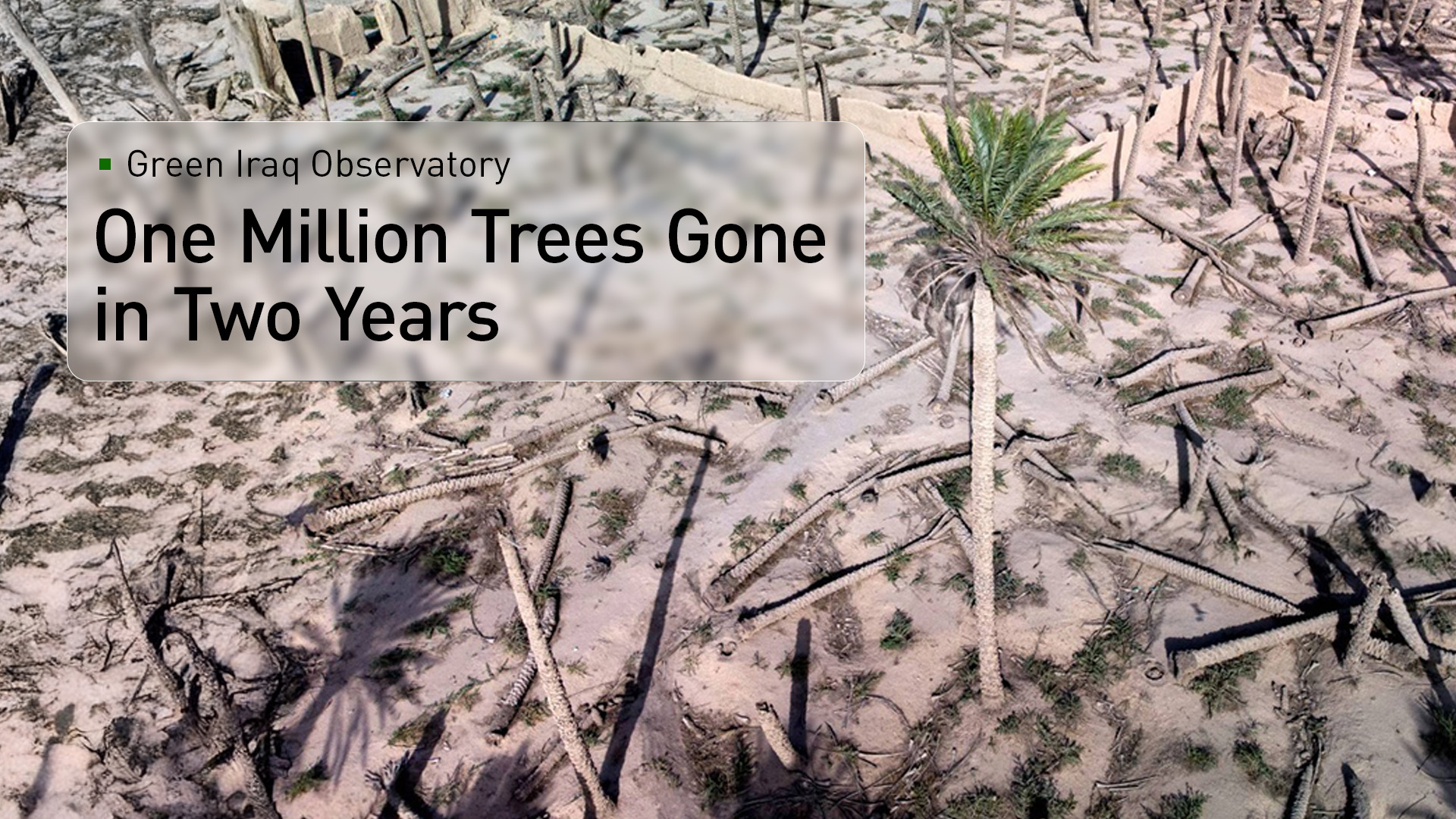Iraq Loses One Million Trees to Drought, Arson, and Neglect
Iraq has lost one million trees in the last two years due to a combination of severe drought, deliberate water cut-offs for the timber trade, destruction for service projects, and arson for land grabbing, according to the Green Iraq Observatory, exacerbating a nationwide environmental crisis.

ERBIL (Kurdistan24) – In a stark and devastating revelation that encapsulates the multifaceted environmental crisis gripping the nation, the Green Iraq Observatory has announced that Iraq has lost a staggering one million trees over the past two years, succumbing to a perfect storm of severe drought, deliberate sabotage, and systemic neglect.
The loss, detailed in a comprehensive statement released on Saturday, paints a grim picture of a nation's green heritage being systematically erased, not only by the relentless march of climate change but also by a disturbing pattern of human actions, from the illicit timber trade to arson for the sake of lucrative real estate development.
The Observatory's report, released on Saturday, identified a confluence of five primary reasons behind this catastrophic loss, which has seen the majority of the lost trees either dry up completely or fall victim to disease.
The first and most pervasive cause is the crippling drought that has ravaged the country. As previously reported by Kurdistan24, Iraq's water reserves have plummeted to an 80-year low, a crisis fueled by insufficient rainfall and a drastic reduction in the flow of the Tigris and Euphrates rivers.
This severe water scarcity, which has already forced authorities to drastically cut agricultural cultivation, is now claiming the nation's forests and orchards, the very lungs of its landscape.
This natural disaster, however, is being dangerously compounded by deliberate human actions. The Green Iraq Observatory's statement revealed a disturbing trend of what appears to be calculated environmental destruction for profit.
"Another reason for the trees drying out is the cutting off of water to some orchards and forests in preparation for selling the wood to grilled fish shops," the statement disclosed, noting that this destructive practice has been repeatedly observed in the provinces of Nineveh and Wasit.
This suggests a cynical and short-sighted trade in which the long-term health of the environment is being sacrificed for immediate financial gain.
The third major driver of this loss is the collateral damage inflicted by development.
"Many trees, some of them mature, have been destroyed due to service projects," the Observatory clarified. While contractors have been instructed to plant small saplings as replacements, the report dismisses this as an ineffective solution.
"Planting small saplings is ineffective because they require years of watering and care to grow and mature," a process that cannot immediately replace the ecological value of a mature tree.
Even more alarming is the fourth reason: the deliberate use of arson as a tool for land grabbing. The statement noted that "some individuals have set fire to orchards and forests, leading to the burning of many trees, with the intention of completely clearing the area and preparing it for sale as plots of land to citizens who benefit from government decisions."
The report cited a recent and specific example of this practice in a garden in the Dora district of southern Baghdad. This tactic represents a direct and criminal assault on public and private green spaces, transforming them into barren plots for speculative real estate ventures.
The fifth and final reason cited is the uprooting of trees for the construction of commercial or residential projects, often without any effort to replant, thereby completely eliminating the green cover in those areas.
This loss of one million trees is not an isolated issue but a symptom of a much larger, catastrophic environmental collapse that is uprooting entire communities and threatening the future of the nation.
The crisis is perhaps most acute in southern Iraq, where the historic Mesopotamian Marshes, a UNESCO World Heritage Site, are facing a devastating water crisis that has persisted for months. As reported by Kurdistan24, residents of the Hawizeh Marshes say the disaster has destroyed their livelihoods, with dozens of their precious water buffalo, a cornerstone of the local economy, dying every day.
This has triggered a mass displacement as families are forced to flee their ancestral homes in search of drinking water and grazing pastures.
This human catastrophe is being driven by the same forces that are killing the nation's trees. The International Organization for Migration (IOM) has documented the staggering scale of climate-induced displacement, with 168,696 individuals forced to move due to crippling water scarcity, land degradation, and the collapse of agricultural and fishing yields.
The government's response has been widely criticized as inadequate, with citizens often describing it as "patchwork" solutions. The recent admission by the Iraqi Ministry of Environment of widespread drinking water contamination in the Middle Euphrates provinces, after initially dismissing reports as "election propaganda," has only deepened the public's sense of abandonment.
The cumulative effect of this environmental degradation is a nation teetering on the brink of ecological and social collapse.
The UN has ranked Iraq as one of the countries most vulnerable to the impacts of climate change, losing an estimated 404 square kilometers of agricultural land annually.
The loss of one million trees in just two years is a stark and quantifiable measure of this decline, a silent alarm signaling the urgent need for a concerted national effort to protect and restore a landscape that is rapidly vanishing.